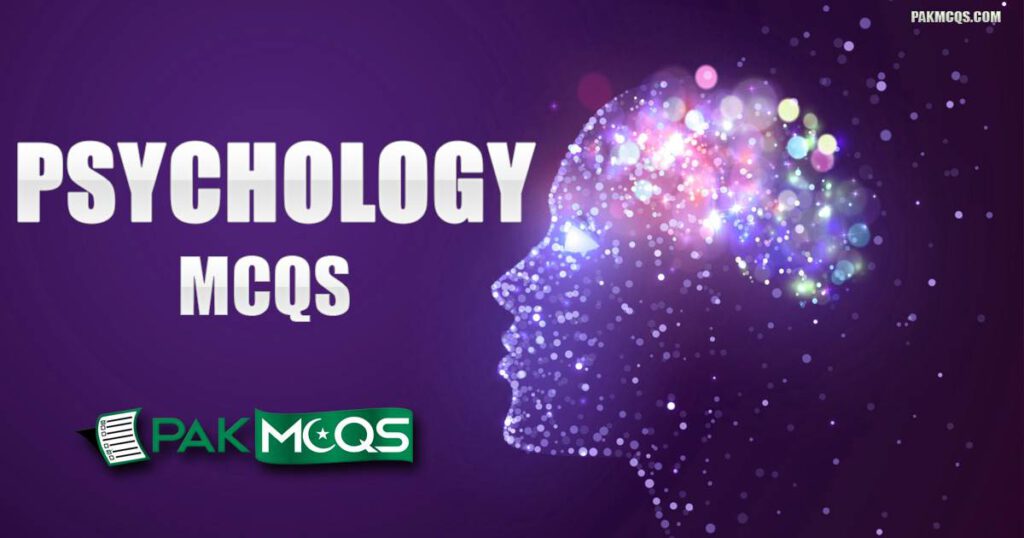A. a misleading perception that distorts or misjudges a stimulus
B. top-down procession
C. the organization of perception by beginning with low-level features
D. bottom-up processing
Psychology Mcqs
Psychology Mcqs for Preparation – These Multiple Choice Questions are important for Lecturer Psychology, Clinical psychologist, Counselling psychologist, Educational psychologist and Forensic psychologist Jobs tests. Psychology Mcqs questions are very important for all type of exams conducted by Fpsc, Nts, Kppsc, Ppsc, Spsc, Bpsc, Ots, Uts, Pts, Cts, Ats, etea and other testing agencies of Pakistan.
| PSYCHOLOGY MCQS | |||
|---|---|---|---|
| 1. Introduction to Psychology | 2. Emotions | ||
| 3. Therapy | 4. Memory | ||
| 5. Intelligence | 6. Infancy And Childhood | ||
| 7. Health Psychology | 8. Forensic Psychology | ||
| 9. Branches of Psychology | 10. Attitudes, Attributions And Social Cognition | ||
| 11. Adolescence And Adulthood | 12. Abnormal Psychology | ||
| 13. Social Psychology | 14. Sensation And Perception | ||
| 15. Research Methods | 16. Psychology Theories | ||
| 17. Psychological Disorders and their Treatment | 18. Personality | ||
| 19. Organizational Psychology | 20. Nervous System | ||
| 21. Motivation | 22. Methods and Approaches | ||
| 23. Methodology | 24. Major Thinkers in Psychology | ||
| 25. Learning | 26. Language And Thought | ||
| 27. Interpersonal Relations And Group Processes | 28. Industrial Psychology | ||
| 29. Educational Psychology | 30. Developmental Psychology | ||
| 31. Criminal Psychology | 32. Coordination | ||
| 33. Cognitive Psychology | 34. Biological Foundations of Behavior | ||
| 35. Miscellaneous Psychology | 36. | ||
A. perceptual (Gestalt) organization
B. cognitive style
C. cognitive organization
D. perceptual integration
A. warmth and pressure
B. warmth and pain
C. pressure and pain
D. cold and warmth
A. accommodation
B. subliminal stimulation
C. distraction
D. acupuncture
A. loudness
B. amplitude
C. wavelength
D. location
A. closure
B. continuation
C. similarity
D. nearness
A. more accurate depth perception
B. poor vision in bright illumination
C. poor vision in low illumination
D. poor peripheral vision
A. our attention depends on different motor system
B. we use selective attention
C. we use divided attention
D. we use sequential attention
A. transduction
B. difference thresholds
C. sensory adaption
D. top-down processing
A. aerial perspective
B. linear perspective
C. relative size
D. relative motion


